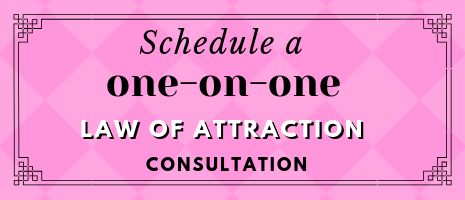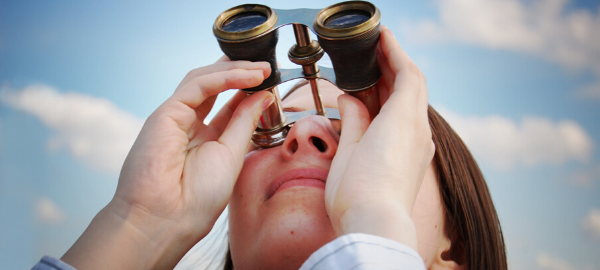How to Receive Love
Learning how to receive love can sometimes seem more challenging than loving all on its own. The giving of love and the reception of love are two parts of a whole. They work in tandem. So if you deny receiving love, then the other side won’t work either. It’s important to know how to receive love in addition to learning how to give it. Once you learn how to balance the two, you’ll be more likely to maintain a healthy loving relationship.
Love can sometimes seem out of reach and unattainable. Many a love song will tell you that it’s hard to find, hard to keep, hard to let go. However, love doesn’t have to be hard at all. Love can be very real, very tangible, and is very much available to anyone who is in need of it. If you’re used to having love around, then learning how to receive love will feel familiar.
For those that struggle with how to receive love, you can find a lot of answers in your early life and childhood upbringing. If there was a lack of love and affection in the family (particularly from parents), then you’ll see that lack of love reflected in your current life, in both personal, romantic, and casual friendships. However, all is not lost.
The best way to learn how to receive love is to practice. The more often you can exercise your “how to receive love” muscle, the better you’ll become at receiving it.
Why We Need Love
As humans, we cannot exist without love. There have been numerous scientific studies done on human infants (as well as other animals) proving that lack of love is detrimental to the human condition. Below is a short list of those experiments.
- Holy Roman Emperor Frederick II’s (13th century) experiments on infants [1]
- René Spitz’s studies of Emotional Deprivation on Infants (1952) [2]
- The Relationship between Orphanages and Infant survival rate [3]
- The Devastating Effects of Isolation on Social Behaviour [4]
- The Effect of Touch on a Human Infants Growth & Survival [5]
- The Need for Human contact in Babies [6]
Love is a powerful force that goes beyond just warm feelings; it has real effects on our well-being. Scientifically, when we experience love, our brain releases chemicals like oxytocin, often called the “love hormone.” This chemical promotes bonding and social connections, making us feel closer to others. It’s like a natural glue that strengthens relationships and creates a sense of belonging. Studies have shown that people who have strong social connections and experience love tend to have lower stress levels and better overall health.
Furthermore, love has a positive impact on our mental health. When we feel loved and supported, it can boost our self-esteem and confidence. This sense of being valued and cared for can help reduce feelings of anxiety and depression. Additionally, the act of giving and receiving love releases dopamine, a neurotransmitter associated with pleasure and reward. This is why doing kind things for others or experiencing acts of kindness can make us feel good and connected. Ultimately, our need for love isn’t just emotional – it’s rooted in our biology and has significant effects on both our physical and mental well-being.
On a broader scale, love also plays a crucial role in society. When individuals feel loved and supported, they’re more likely to contribute positively to their communities. Acts of kindness, empathy, and compassion foster a sense of unity and understanding among people. Love fuels our desire to help and care for one another, which can lead to a more cooperative and harmonious society. So, whether it’s in our personal relationships or in the larger world, the need for love is a fundamental aspect of our human experience with far-reaching effects.
How Love Feels
Love is going to feel differently for everyone. To some it might feel tingly, soft, warm, and fuzzy. To others, it might feel electric, bold, and abundant. In either case, it will feel comfortable. If you practice how to attract love energy, you’ll learn how to bring love into your life on a daily basis or on command. Love is fluid and plentiful. It’s important that you get a true feeling for love so much that it is natural to feel it early and often.
Describing how love feels can be quite complex, as it involves a mix of emotions and sensations. When you experience love, you might notice a warm and comforting feeling in your chest. This feeling of warmth is often linked to the release of oxytocin, a hormone that promotes bonding and closeness. It’s like a gentle, soothing sensation that makes you feel safe and connected to the person you love.
Love can also create a sense of happiness and joy. It’s like a burst of positive emotions that light up your mood. When you’re around someone you love or thinking about them, you might find yourself smiling or feeling a sense of excitement. This is because love triggers the release of dopamine in your brain, which is associated with pleasure and reward. It’s your brain’s way of saying, “This person makes me happy!”
However, love isn’t just about positive feelings. Sometimes, love can also bring about feelings of vulnerability and concern. You might worry about the well-being of the person you love or feel a deep sense of empathy when they’re going through a tough time. These feelings show that love is a complex emotion that involves both happiness and a willingness to share in both the joys and challenges of life. Overall, love is a mix of physical sensations, feelings, and emotions that combine to create a unique and profound experience.
How To Accept Love
Accepting love can sometimes be a challenge, especially if we struggle with self-doubt or fear of vulnerability. One way to start is by recognizing your own worth and embracing self-love. When you value yourself, it becomes easier to believe that you deserve the love that others offer.
Additionally, practice being open and receptive to compliments and gestures of affection. Instead of brushing them off, allow yourself to take them in and acknowledge the positive feelings they bring. Remember that accepting love doesn’t make you weak; it shows strength in allowing yourself to connect with others on a deeper level.
Accepting love involves embracing your own feelings and allowing others to express their affection for you. Start by practicing self-compassion and understanding that you are deserving of love and care. It’s important to challenge any negative beliefs you might have about yourself that hinder your ability to accept love. Instead of deflecting compliments or gestures, take a moment to acknowledge and internalize them.
Accepting love is not a sign of weakness, but a demonstration of your willingness to connect and create meaningful bonds with others. By valuing yourself and being open to receiving affection, you can enrich your relationships and experience greater emotional fulfillment.
How to Receive Love
You’ll need to learn to master loving yourself before you can receive love. Love works best as a reciprocal energy. If you’re still not familiar with how to receive love, take a look at your upbringing and how love and affection was given or received in your family. If you witnessed and experienced a lot of love and affection growing up, then you should see a lot of it in your young adulthood and adulthood.
However, if love was neglected, then you’ll often have a difficult time recreating it in your later years. This can be overcome if there is a genuine effort to reevaluate oneself. Self awareness is crucial at this point. Ask yourself how your personal relationships are and reexamine how or why they end (or the recurring patterns that appear in them). Once you are able to take a step back and be honest about your love life, only then will you be able to see clearly what is hindering the ability for you to receive love.
Receiving love involves being present and open to the emotions and intentions of others. A key step is practicing active listening when someone expresses their feelings for you. Show genuine interest and appreciation for their words. Furthermore, allow yourself to be vulnerable. Vulnerability doesn’t mean weakness; it’s a sign of courage and authenticity.
Share your thoughts and emotions honestly with those who care about you. Lastly, let go of any self-doubt that might hinder your ability to receive love. Remind yourself that you are worthy of love and that those who care about you value you just as you are. By opening yourself up to receive love, you create a space for deeper connections and meaningful relationships in your life.

In conclusion, learning how to receive love is an essential part of nurturing meaningful relationships and fostering emotional well-being. By practicing active listening, vulnerability, and self-acceptance, we create a space for authentic connections to flourish. Remember that receiving love doesn’t diminish your strength; it showcases your courage to connect and be present in the moments of care and affection shared by others.
As we embrace the art of receiving love, we open ourselves to the beauty of human connection. By valuing our own worthiness and being open to the kindness and affection of those around us, we contribute to a cycle of positivity and understanding. By practicing these principles, we not only enrich our lives but also encourage a culture of compassion and empathy, nurturing an environment where love can thrive and relationships can blossom.
Love Reception Consultations
If you still find receiving love to be challenging and you would like hands-on help and guidance, please sign-up below for the next available appointment.








